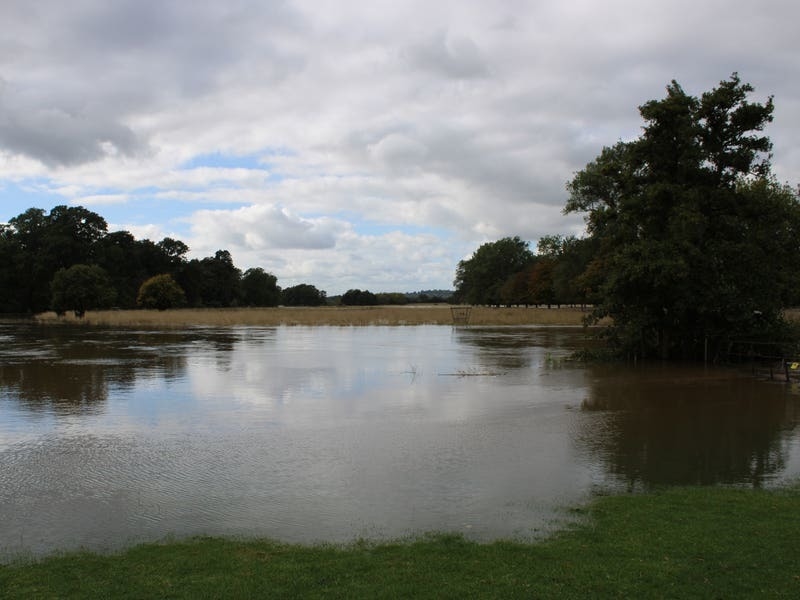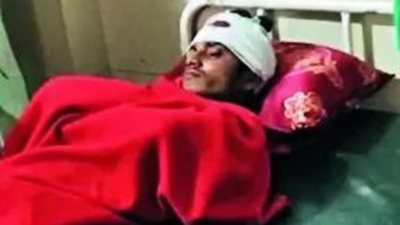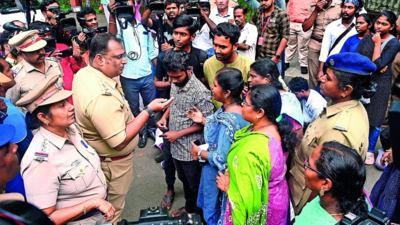
In Kwango, a remote part of the Democratic Republic of the Congo, an unknown illness continues to rage in villages, killing mostly children. So far, public health officials there have reported 143 deaths. On December 10, the World Health Organization said that of the 12 initial samples of the mysterious disease, now dubbed X, "10 tested positive for malaria, although it's possible that more than one disease is involved.
" "The disease is mostly affecting the patient suffering from severe malnutrition, making it harder to trace the illness's exact source," WHO has said . With public health officials and WHO battling to control the spread of the disease and investigate its origin, dozens of social media users, without evidence, blamed the U.S.

and other foreign public institutions for the outbreak. One such X user and activist, Egountchi Behanzin, known for sharing pro-Russia and anti-U.S.
narratives, claimed: "Is it a coincidence that the Congo has become an experimental laboratory where populations have become guinea pigs to allow the World Health Organization, the #BillGates foundation, American European pharmaceutical firms and American biolabs to test viruses and other dirty things?" That is false. For decades, Russia has launched widespread disinformation campaigns in Africa attacking U.S.
public health campaigns. On February 12, the Global Engagement Center, the State Department's unit countering disinformation, published The Kremlin's efforts to spread deadly disinformation in Africa, a report that exposed a web operated by the Russian intelligence services through a news agency, Africa Initiative. "One of Africa Initiative's first major campaigns is to target U.
S. and Western health initiatives in Africa with dangerous health-related disinformation," the report said. "Africa Initiative recruits African journalists, bloggers and members of local publics to support and amplify the organization's work of bolstering Russia's image and denigrating that of other countries.
Mark Duerksen, a research associate at the Africa Center for Strategic Studies, told VOA Fact Check in an interview that "the statement repeats a number of conspiratorial claims that we have seen recycled by FIMI [Foreign Information Manipulation and Interference] campaigns in Africa as a way of spreading disinformation. These campaigns prey on the fear and uncertainty of disease outbreaks and cynically use that as fodder to discredit Western public health initiatives." Duerksen added, "Egountchi Behanzin has used his platform to make similar claims about malaria vaccines in Burkina Faso.
His claims have been amplified by pro-Russian influencers and the African Initiative, a Russian-sponsored disinformation outlook. His claims should be evaluated within this context." Behanzin was recently exposed by The New York Times, the BBC and The Wall Street Journal , among others, for spreading disinformation about anti-malaria vaccines in Africa.
Contrary to Behanzin's claims, WHO , created 76 years ago, is a credible U.N. agency with 150 offices worldwide.
It is the largest intergovernmental health organization in the world and is mainly responsible for global public health. According to the U.S.
Food and Drug Administration , "Before a drug can be tested in people, the drug company or sponsor performs laboratory and animal tests to discover how the drug works and whether it's likely to be safe and work well in humans." Fondation Hirondelle , a Swiss nonprofit organization that provides information to populations faced with crisis in Congo and other parts of the world, said there have been "similar conspiracy theories against [the] Bill and Melinda Gates Foundation that it plans to reduce the Congolese population," but "there is no credible or factual basis to support the thesis." Close Sign up for free AllAfrica Newsletters Get the latest in African news delivered straight to your inbox Top Headlines Congo-Kinshasa Governance Health Submit By submitting above, you agree to our privacy policy .
Success! Almost finished...
We need to confirm your email address. To complete the process, please follow the instructions in the email we just sent you. Error! Error! There was a problem processing your submission.
Please try again later. _ready.push(function($) {if ( ! loadjs.
isDefined( 'newsletter-signup-assets' ) ) { loadjs( ["https://cdn01.allafrica.com/static/js/jquery/jquery.
serialize-object.min.js?v=2024120400","https://cdn05.
allafrica.com/static/js/newsletter-signup.min.
js?v=2024120400","https://cdn05.allafrica.com/static/css/newsletter-signup.
min.css?v=2024120400"], 'newsletter-signup-assets', { async: true, });} // the newsletter widget calls storageAllowed(), which is imported with // the cmp bundle. passing an array of bundle names to loadjs triggers // the callback only after all of the listed bundles have fired.
loadjs.ready( [ 'cmp', 'js-cookie', 'events', 'newsletter-signup-assets' ], function() { $('.newsletter-signup.
inread.collapse.w-background.
w-background-color.blue').newsletterInRead({ maxShowCount: 10, maxCloseCount: 3, maxSuccessCount: 1, }); }); }); Although the U.
S. has labs in several countries, including Congo, the U.S.
State Department said the U.S. works with partner countries to support the control and surveillance of infectious-disease outbreaks with epidemic potential.
"The United States' peaceful cooperation and assistance activities comply with and help fulfill our obligations under the BWC [Biological Weapons Convention]. These cooperation and assistance activities have been transparent and designed to help countries detect, prepare for and respond to outbreaks of infectious diseases," the State Department said. In Congo, the U.
S. operates a lab jointly with Japan that monitors malaria, measles, Ebola and Marburg, among other diseases. loadjs.
ready( 'lazyload', function () { const images = document.querySelectorAll('body.interior.
story.aans.view .
story-body img.lazy'); lazyload(images,{rootMargin:"200px 0px"}); }); ready(function () { fireLoadJSBundle('lazyload'); }); Read the original article on VOA ..















